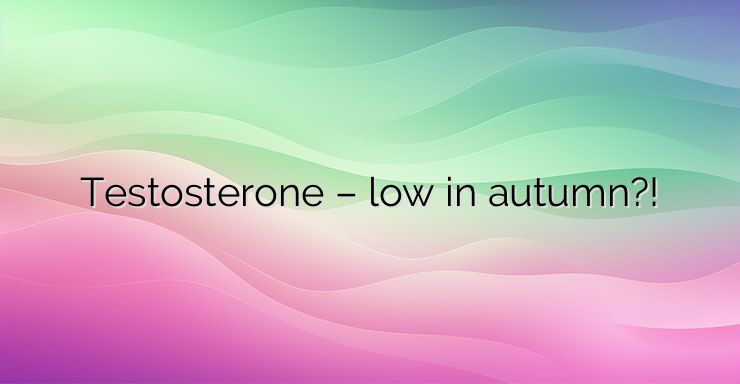Testosterone is a steroid hormone and is secreted not only by the testicles of men, but also to a lesser extent by the ovaries in women and in certain amounts by the adrenal glands. It is the main male sex hormone and anabolic steroid. In men, it is key to the development of reproductive tissues of organs such as testicles and prostate, but is also responsible for secondary sex characteristics: muscle and bone mass, hair growth, timbre, etc. There is about 20 times more of this hormone in the male body than in the female, but even this amount is subject to seasonal variations. Usually in the spring its concentration begins to rise, in the summer it is at its highest point, in the autumn it begins to fall and the lowest levels are noted in the winter. According to Prof. Johan Svartberg from Norway’s Tromsø University, in winter, a man’s testosterone levels can be 20% to 40% lower than in summer or autumn. In 2009, Prof. Swartberg and his team conducted a sociological survey, according to which thousands of men surveyed considered it normal for their testosterone to be much lower in the fall than in the summer. However, this is a widespread misconception – it should be slightly lower, its sharp drops already at the beginning of the cold are rooted in other reasons, not only in the seasonal variation. In the period September-October, its levels in blood tests should not be more than 10% lower than in the period June-August. NEWS_MORE_BOX Up to 45-50 years of age, good health guarantees normal hormone levels in the body. If it is too low, the reasons can have serious health consequences. The most common causes of hormonal decline are vitamin D deficiency, hypogonadism, mumps, scrotal injuries and andropause, in men over 65. Testosterone has both a physiological and psychological impact on health and frequent, severe depression, decreased libido or lethargic states , decreased memory, motivation and self-confidence can also be considered the first signs of its deficiency. Accumulation of fat in the abdominal and visceral areas and loss of muscle mass can also be rooted in hormone deficiency. If these symptoms are combined with reduced sexual desire and impaired ability to achieve and maintain an erection, the deficiency is extremely acute, which requires an urgent consultation with a doctor.


Leave a Reply